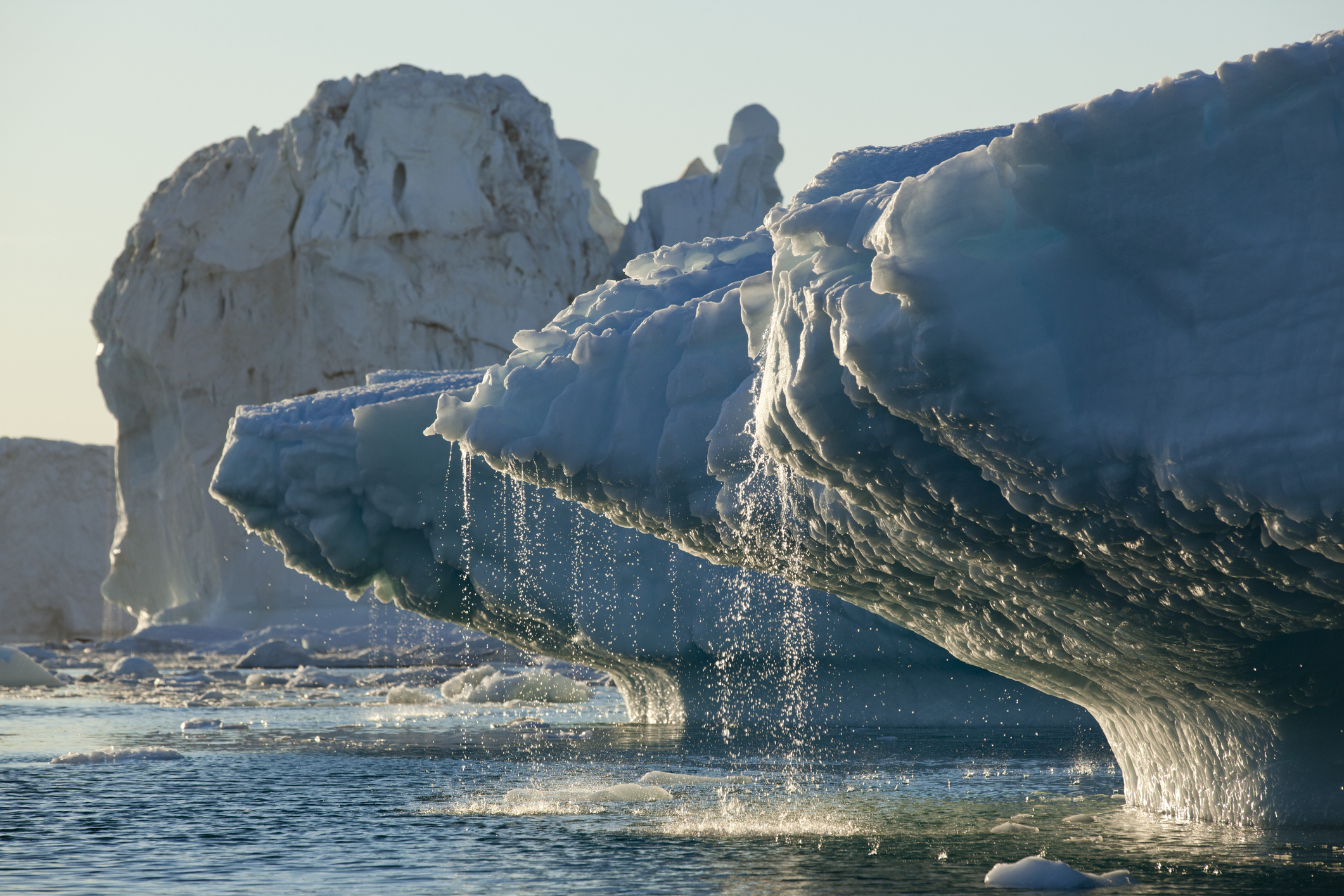Why an ocean current is on the brink of collapse


A free daily email with the biggest news stories of the day – and the best features from TheWeek.com
You are now subscribed
Your newsletter sign-up was successful
An important Atlantic Ocean current system is on the brink of collapse, according to a study published in the journal Nature Communications.
Known as the Atlantic Meridional Overturning Circulation (AMOC), the current is "part of a 'global conveyor belt' that moves water around the world" and "helps to regulate everything from the rate of sea level rise on the East Coast to Europe's average temperatures," Axios reported. The AMOC also serves as a crucial "tipping element," meaning it "could undergo an abrupt and irreversible change, with dramatic consequences for the rest of the globe," per The Washington Post.
The AMOC plays an important role in the overall climate system; however, climate change "has thrown a wrench in the system," the Post wrote. Climate change has caused ice to melt, moving cold freshwater into the Atlantic Ocean. "When the increased meltwater from Greenland enters the North Atlantic, it's freshwater, which is lighter than the salty seawater around it," study co-authors Peter and Susanne Ditlevsen told USA Today. "This excess freshwater can disrupt the normal sinking of the salty water, weakening or even shutting down the AMOC."
The Week
Escape your echo chamber. Get the facts behind the news, plus analysis from multiple perspectives.

Sign up for The Week's Free Newsletters
From our morning news briefing to a weekly Good News Newsletter, get the best of The Week delivered directly to your inbox.
From our morning news briefing to a weekly Good News Newsletter, get the best of The Week delivered directly to your inbox.
The study found that the AMOC could collapse sometime between 2025 and 2095, with somewhere between 2039 and 2070 being the most likely, Peter Ditlevsen told CNN. "The scientific evidence now is that we can't even rule out crossing a tipping point already in the next decade or two," Stefan Rahmstorf, an oceanographer at the Potsdam Institute, told the Post.
"Our result underscores the importance of reducing global greenhouse gas emissions as soon as possible," said Peter Ditlevsen, per USA Today. A collapse "would affect every person on the planet — it's that big and important," added Peter de Menocal, the president of the Woods Hole Oceanographic Institution, while speaking with CNN.
A free daily email with the biggest news stories of the day – and the best features from TheWeek.com
Devika Rao has worked as a staff writer at The Week since 2022, covering science, the environment, climate and business. She previously worked as a policy associate for a nonprofit organization advocating for environmental action from a business perspective.
-
 Is Andrew’s arrest the end for the monarchy?
Is Andrew’s arrest the end for the monarchy?Today's Big Question The King has distanced the Royal Family from his disgraced brother but a ‘fit of revolutionary disgust’ could still wipe them out
-
 Quiz of The Week: 14 – 20 February
Quiz of The Week: 14 – 20 FebruaryQuiz Have you been paying attention to The Week’s news?
-
 The Week Unwrapped: Do the Freemasons have too much sway in the police force?
The Week Unwrapped: Do the Freemasons have too much sway in the police force?Podcast Plus, what does the growing popularity of prediction markets mean for the future? And why are UK film and TV workers struggling?
-
 How climate change is affecting Christmas
How climate change is affecting ChristmasThe Explainer There may be a slim chance of future white Christmases
-
 Blue Origin launches Mars probes in NASA debut
Blue Origin launches Mars probes in NASA debutSpeed Read The New Glenn rocket is carrying small twin spacecraft toward Mars as part of NASA’s Escapade mission
-
 Why scientists are attempting nuclear fusion
Why scientists are attempting nuclear fusionThe Explainer Harnessing the reaction that powers the stars could offer a potentially unlimited source of carbon-free energy, and the race is hotting up
-
 Dinosaurs were thriving before asteroid, study finds
Dinosaurs were thriving before asteroid, study findsSpeed Read The dinosaurs would not have gone extinct if not for the asteroid
-
 Canyons under the Antarctic have deep impacts
Canyons under the Antarctic have deep impactsUnder the radar Submarine canyons could be affecting the climate more than previously thought
-
 SpaceX breaks Starship losing streak in 10th test
SpaceX breaks Starship losing streak in 10th testspeed read The Starship rocket's test flight was largely successful, deploying eight dummy satellites during its hour in space
-
 NASA is moving away from tracking climate change
NASA is moving away from tracking climate changeThe Explainer Climate missions could be going dark
-
 Rabbits with 'horns' sighted across Colorado
Rabbits with 'horns' sighted across Coloradospeed read These creatures are infected with the 'mostly harmless' Shope papilloma virus
